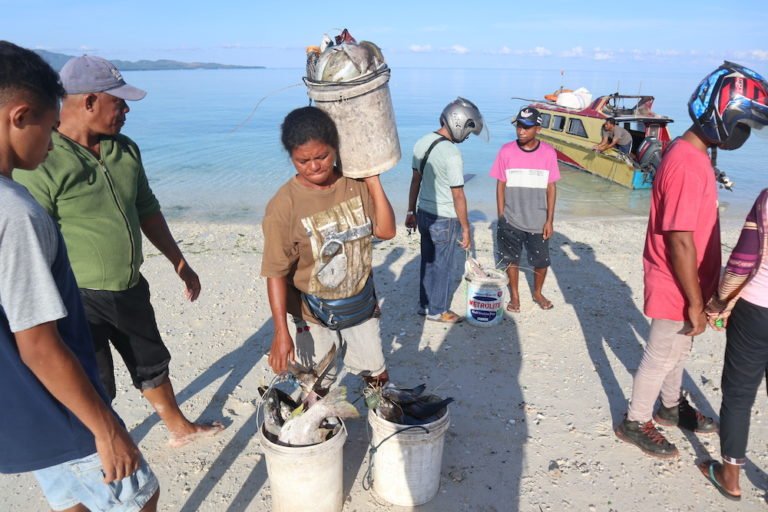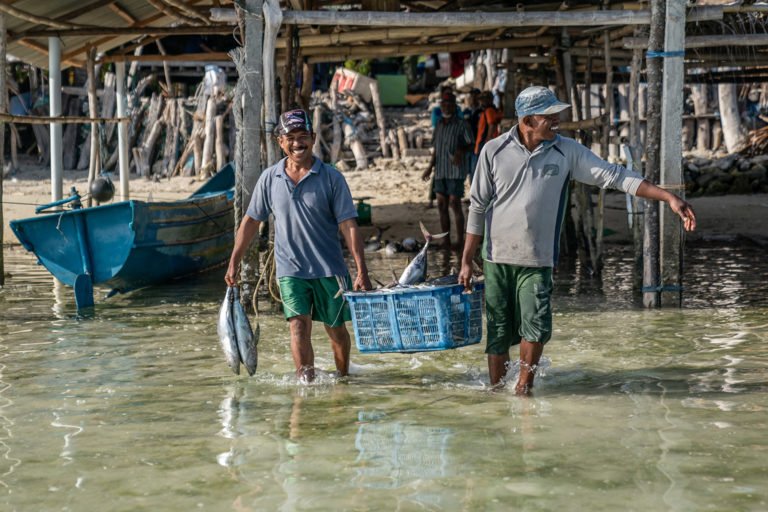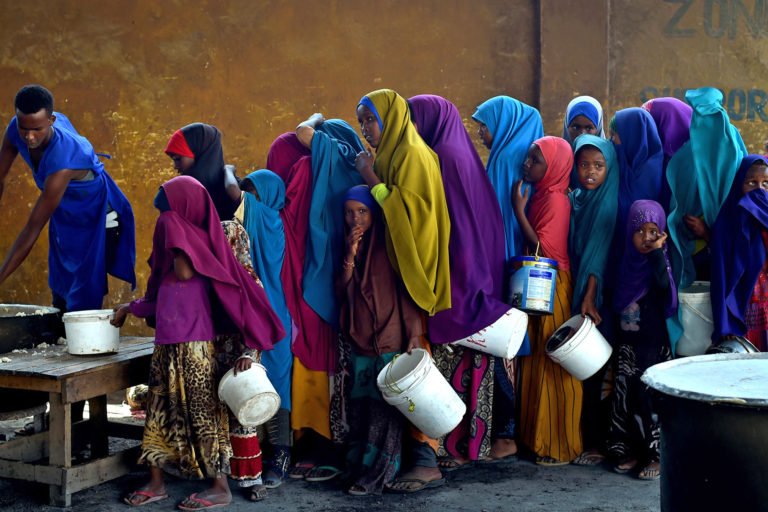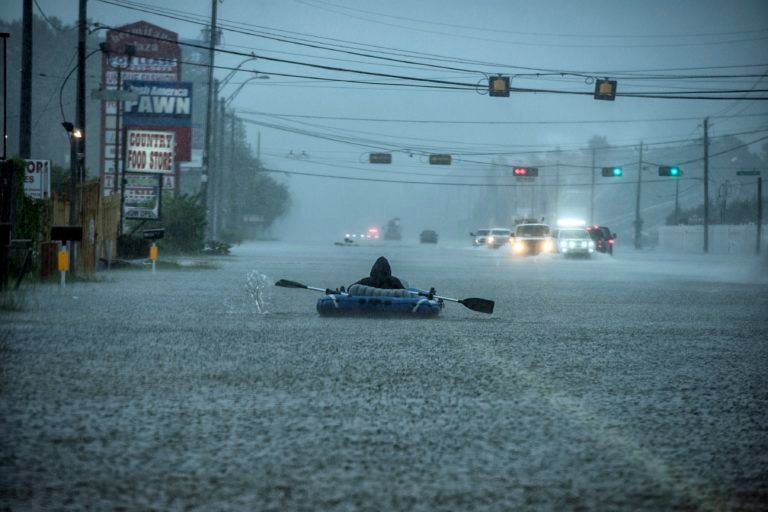- Indonesia will continue subsidizing its small-scale fishers in the wake of a recent deal struck by members of the World Trade Organization to end “harmful” subsidies.
- The legally binding agreement prohibits WTO member states from giving subsidies that support the fishing of already-overfished stocks and curbs those that contribute to illegal, unregulated and unreported (IUU) fishing at sea.
- Indonesian subsidies to fishers — in the form of insurance, fishing gear and fuel subsidies, among others — amount to $92 per fisher annually, much less than in the U.S. ($4,956), Japan ($8,385) or Canada ($31,800).
- Indonesia is the second-biggest marine capture producer, after China, harvesting 84.4 million metric tons of seafood in 2018.
JAKARTA — Small-scale fishers in Indonesia will be exempt from an end to “harmful” subsidies agreed by governments at the World Trade Organization. Indonesian negotiators citing existing fishing quotas that are meant to be sustainable and the fact that Indonesian fishers receive a fraction of what fishers in other countries get in the way of subsidies.
The WTO on June 17 struck the deal banning its 164 member states from giving subsidies that support the fishing of already-overfished stocks and curbing those that contribute to illegal, unregulated and unreported (IUU) fishing at sea. To protect its small-scale fishers, who account for the majority of fishers in the country, the Indonesian government has invoked two “exempting provisions” — namely, the special and different treatment (S&DT) and fisheries management (FM) provisions — that allow fishers in less-industrialized coastal countries to continue receiving subsidies.
“Indonesia chose the fisheries management approach because we want to continue give subsidies to our fishers, and FM has already been implemented in our country for a long time,” Nilanto Perbowo, a fisheries expert and negotiator with the Indonesian delegation to the WTO ministerial meetings, told Mongabay in a press briefing on June 21.
“Indonesia has since the beginning of the fisheries subsidy ban talks fought for exemptions for small-scale and traditional fishers because they are the majority of our fishing communities,” Nilanto added.
Indonesia currently provides financial support in the form of insurance, fishing gear and fuel subsidies, among others, to fishers operating boats smaller than 30 gross tonnage. These subsidies are estimated to amount to $92 per fisher — a far cry from the average $4,956 that the U.S. gives its fishers, or $8,385 in Japan, or the $31,800 that Canadian fishers get from their government.
Nilanto said the WTO agreement recommends fisheries management that’s based solely on the maximum sustainable yield (MSY) scheme, or the highest possible annual catch that can be sustained over time. Indonesia has capped its total allowable catch at 80% of its reported MSY of about 12 million metric tons.
Nilanto added that Indonesia would have to submit to the WTO the country’s proposed measures for recovering its overfished fish stock. A panel of experts and state representatives from other WTO member countries will review the measures, which would then allow Indonesia to continue giving fisheries subsidies. The fisheries ministry recently reported that 53% of Indonesia’s 11 fisheries management areas, known as WPPs, were now deemed “fully exploited,” up from 44% in 2017, indicating that more stringent monitoring is required.
The government has worked for several years to boost fish stocks, primarily under former fisheries minister Susi Pudjiastuti, who was in office from 2014 to 2019. By 2018, official estimates for the country’s total fish stocks showed a 5% increase from the previous two years, which fisheries experts attributed largely to Susi’s efforts to keep illegal foreign fishing vessels out of the country’s waters.
Indonesia is the second-biggest marine capture producer, after China, harvesting 84.4 million metric tons of seafood in 2018, according to the U.N. Food and Agriculture Organization. The country’s waters support some of the highest levels of marine biodiversity in the world, and the fisheries industry employs about 12 million Indonesians. Most of Indonesia’s fishing fleet today, about 650,000 vessels, is operated by small-scale and traditional fishers.

The Indonesian delegation to the WTO talks said it was “happy” with the current deal. But many observers have criticized the WTO agreement, saying that in easing the burden on less-industrialized countries like Indonesia, it fails to target big fleets from industrialized countries that threaten fish stocks.
“While this eases the burden on developing countries and grants them a temporary reprieve from having to cut OCOF [overcapacity and overfishing] subsidies, it also means that now developed countries will enjoy the same exemption,” Renja Sengupta, senior researcher at Malaysia-based nonprofit advocacy group Third World Network, said in a press statement received by Mongabay on June 17.
Many governments subsidize their fishing industries, including fleets that fish outside their jurisdiction. These subsidies have allowed increased fishing activity in parts of the ocean where fishing would otherwise be economically unfeasible. This can deplete fish stocks to unsustainable levels and degrade the marine environment, undermining food security and the livelihoods of local communities who depend on them.
These harmful subsidies run counter to biodiversity and climate change commitments made by most governments, conservationists note. Yet, since negotiations began two decades ago to address these subsidies, governments have spent $400 billion on them, by one estimate. A third of the world’s fish stocks are now thought to be overfished, and most of the rest is considered fished to capacity, according to the FAO.
“Small fishermen in developing countries will be limited in their subsidies and will have to deal with large fishermen who have the ability to provide large subsidies,” Rahmat Maulan Sidik, executive director of Indonesia for Global Justice, an organization that advocates against the negative impacts of trade liberalization, said in a statement. “[T]his is unfair, and the WTO has really failed to address this fundamental issue.”
The talks to ban harmful fisheries subsidy at WTO began in 2001 and failed repeatedly to reach any consensus, missing several deadlines along the way. As pressure to reach a deal mounted, member states decided to put off dealing with certain subsidies where agreement proved elusive: those that contribute to building fleets with capacity to fish unsustainably and other forms of overfishing. Negotiators say they will reopen talks on those issues at the WTO’s next ministerial conference, possibly in late 2023.
The Indonesian government said it would push for banning state subsidies for fleets that operated in the unregulated high seas and for vessels that have changed their state flags. Nilanto said many less-industrialized coastal countries don’t have the budget to compete on subsidies with these fleets.
“We want subsidies by distant-water fishing nations to be restricted or even completely stopped so that it’s a fair competition,” Nilanto said.

FEEDBACK: Use this form to send a message to the author of this post. If you want to post a public comment, you can do that at the bottom of the page.














